Guinea Fowl – Pros and Cons
This post may contain affiliate links, view our disclosure policy for details.
We are going to go over all the information that you need in order to decide if guinea fowl are right for you to keep on your homestead. My goal is that by the end of this post you’ll be able to decide if you want to add guinea fowl to your homestead or not.
I am going to be honest with you right from the start and say that I promise to do my best to write this post from a neutral point of view…
With this sentence behind us, if you guessed that guinea fowl are not my favorite birds… You are right.
But it’s not because they aren’t good birds to keep. In fact, they have a lot of good things going for them which we will discuss later in this post.
When I broke up with my guineas (well, they broke up with me really… I’ll tell you how later) I went with the famous line of “it’s not you… It’s me…”, we didn’t have the best relationship so I don’t really think that they cared, but it was really me.
Guinea Fowl – Pros and Cons…

Therefore, I am not going to say that they aren’t great birds to keep because you are probably very different than me.
I’m gonna share my experience with raising guinea fowl with you and I’ll share my opinions, but I’ll try to keep this information neutral so at the end of this post you can decide for yourself if you want to give guinea fowl a go or pass.
Let’s start with the basics…
Basic Information About Guinea Fowl…
Guinea fowl are native to Africa and are actually closer to turkeys than chickens (chickens are a member of the pheasant family while guineas and turkeys have families of their own).
They arrived in North America with the early settlers from Europe.
There are three varieties of guineas. The most common is the helmeted guinea. The other two are called vulturine guinea and crested guinea.
However, there are actually seven different looking types of guinea fowl if we consider different colors. The most common, the breeds that you’ll see farmers and homesteaders keep, are the pearl guinea fowl (grey with white dots) and sometimes you’ll also see the white guinea fowl.
You can learn more about the different colors here. They all behave the same so this post is relevant for whatever breed you choose.
Guinea fowl are larger than your average chicken but smaller than a turkey. They can fly very well, they like to travel as a group, sticking together and even hunting together and sharing the prey.
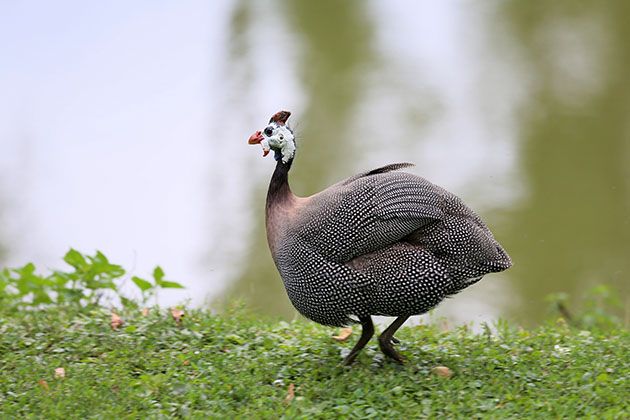
Advantages of Raising Guinea Fowl…
Ok, let’s start with the advantages of guinea fowl. If you were to consider raising guinea fowl… If you asked a guinea fowl lover what good those birds are, these will be the answers you’ll come across…
They are a great (and affordable) home alarm system – let me tell you… I’m gonna list it as a benefit because it’s great, yes, but you can be sure that I’m also going to list it in the disadvantage section as well, because, friends… The headache is real.
These birds are loud! And I mean LOUD. They will alert you if someone pulled into your driveway, if your husband sneezed, if your child stole a popsicle from the freezer, if a tree lost its leaf, if a snake slithered by, if a chicken laid an egg, if zombies have arrived…
You will know that something is happening… My problem with that was that they weren’t really able to inform me WHAT was happening. But rest assured, I knew that there was life on my homestead!
If you are in the market for an affordable patrol squad and alarm system, guinea fowl might be your cheapest choice.
They eat garden pests – I think that this is their greatest advantage! They love eating pests.
In the garden, they will eat all the different pests from beetles to caterpillars to whatever else is there without ruining your plants and garden (for the most part).
They prefer the bugs over the greens or vegetables and fruit.
This is really a huge advantage and I think that if I ever own a flock of guineas again it will be for this reason. I’ll probably make sure the garden is far away from home though.
Anyway, they are a great help if organic food production is something that you are interested in.
They love to eat ticks – aside from garden pests, they will also make sure that your homestead is free of ticks and even chiggers.
They hunt those little nasties all day long. When I had guineas roaming around I did not have one – not one(!) – tick accident on the homestead.
They also eat rodents and snakes – they love hunting mice and they also love hunting snakes. I think that their loud call keeps the snakes away, but god forbid if a confused snake found it’s way to the homestead they’ll find it, torture it, and feast on it as a group. It’s violent, man…
They don’t scratch – well, they do, a little bit but nothing like chickens. If they roam around and free-range the homestead there is about a 90% chance that they are going to keep focusing on their loud conversation with each other and the pests instead of ruining your flower beds. Which is… A good thing.
Their meat is great – guinea fowl can be butchered as early as 11 weeks.
Of course, the young bird’s meat is more tender and less gummy but the bird is also smaller.
I found the taste to be very similar to a chicken. Guineas meat is dryer though. Since they fly so well and it’s rather hard to keep them in a fenced area their meat is more like any other wild meat that you’ll have.
In other words, not as soft and sometimes a bit gummy and has less fat in it. Sometimes more of a gammy taste but I didn’t feel that it was too noticeable.
Guinea fowl meat is very popular in certain parts of the world. Since it’s more natural (the birds usually free-range), rich in protein (they eat bugs all day!), and has less fat it’s very healthy.
If you choose to raise guinea fowl for meat you have to take into consideration that it might be hard to catch them if they are free-range.
Where you can probably catch most chickens rather easily, you might need to shoot a guinea as you would shoot a wild turkey.
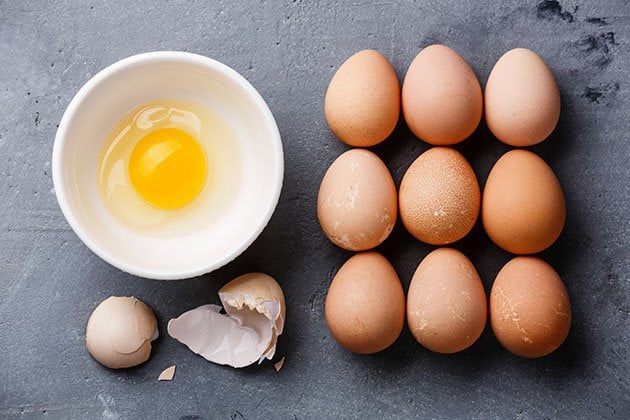
Their eggs are great too – that is… If you can find them. A guinea hen will lay around 100 eggs a year. She makes her nest on the ground usually in an area protected by vegetation.
She waits a long time until she goes broody… Sometimes she can wait until the nest has 40 or more eggs in it. And they might not all be her eggs…
These birds really like each other and share a communal nest. I once found a nest that had almost 60 eggs in it in the bushes behind my house. I have no clue why no one was sitting on it but I could see that it was an active nest.
That means that you do have time (pretending you have nothing else to do or that you birthed at least one child who likes to play Sherlock) to find the nest.
I tried for many months to get my guineas to lay eggs in the coop but nothing that I did worked. They really have a wild nature.
The eggs are great though. They are brown with faint freckles, smaller and pointier than a normal chicken egg and hard as rocks (which means that when the little Sherlock finds the nest you can rest assure that the eggs are going to make it to the kitchen).
Even though the eggs are smaller, the yolk inside of them is as large as most chicken egg yolks. That means that the yolk/egg whites ratio is higher which means that the eggs are very rich in protein and other nutrients (this is mainly because guinea fowl usually free-range).
I devoted a whole post to guinea fowl eggs if you want to learn more about them. Make sure to check it out.
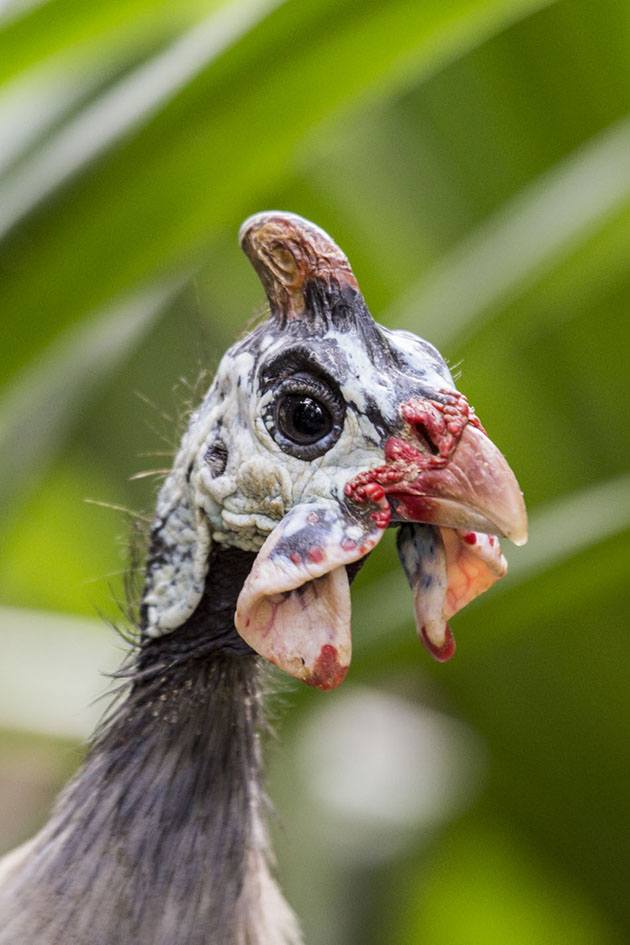
They are low maintenance – I found that my guineas didn’t want much to do with me. In fact, I was wondering what really made them stick around…
They do their thing, run around, eat ticks and pests, occasionally fight with each other, and talk a whole lot.
They weren’t that interested in the feed, wanted nothing to do with the coop, and didn’t cross paths with me much.
They are indeed… Very low maintenance.
They are entertaining – there are many people who just like to have them around as pets… They are beautiful in their own special ugly way, they interact with each other, you can find them high in the trees or in the bushes…
They are funny and annoying, stupid and smart, wild and domesticated all at once. To this day I am still trying to figure out how this is possible but somehow it just is.
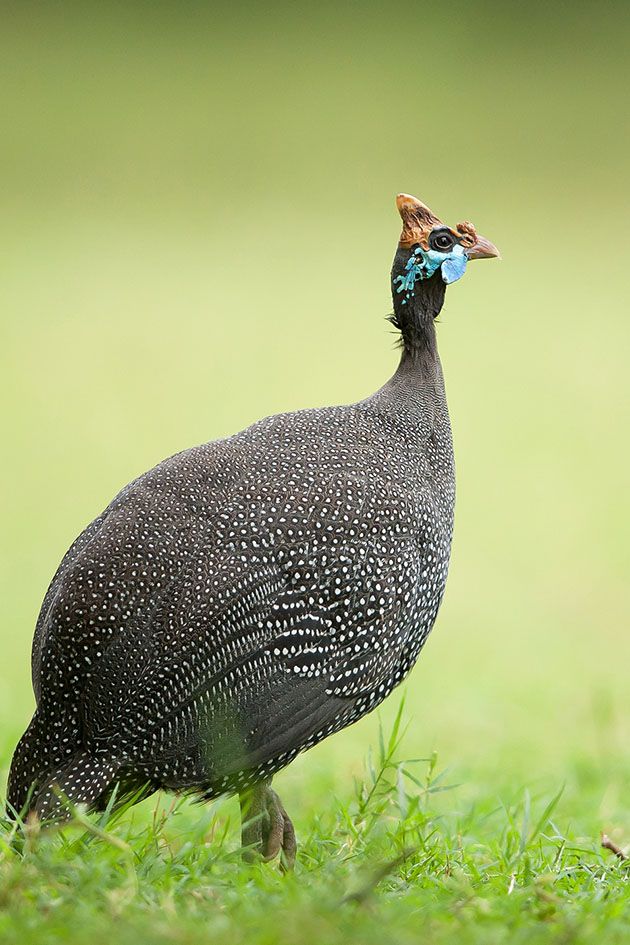
Disadvantages of Raising Guinea Fowl…
Um yes… There are a few things that you should really consider before you decide to raise guinea fowl…
They are loud – oh boy…
I guess this is the right time to share with you my guinea fowl experience.
My ex-husband wanted to raise guinea fowl. I didn’t care much about them because I had the chickens and the ducks and they were enough for me. I didn’t do any research on them… It was his thing.
So one day I found myself with 13 guinea keets (baby guineas). We raised them in the brooder inside the house and all was well.
They grew and grew and finally it was time to move them outside. All was well for a few more weeks but when they reached their teenage/young adult stage they started talking and never EVER stopped.
They were yelling… All. Day. Long. Oh! And night too. Yep, they NEVER stopped.
Now, I love silence. Silence is rest for me. Homeschooling four little kids meant there was no silence whatsoever around the house. Add to that the 13 Beyonce wannabes and I was about to check myself into a hospital for people who have gone mental. My time was running out. Fast.
The ex-husband didn’t care about anything that had to do with my well being (hence the “ex”) and was not willing to get rid of the annoying creatures (he was far away at work all day and didn’t have to deal with the noise).
I kid you not, I was not able to handle the noise any longer. Truly, I could not sleep, I was tired, so so tired. Yet I still had to take care of the house, the farm, the business, the kids…
Right before I broke, I had a trip scheduled to go visit family in Israel. I love my homestead but really, the guineas were one of the reasons that I was so happy to leave that year.
It was a five-week trip (just me and the kids) and before I left I looked up to the sky and said… “Dear God. I love you and I know with all my heart that you love me too. Please help me get rid of these creatures. Please. When I come back I want them gone!”.
While I was gone, one after the other, the guineas got ran over by cars. I am completely serious. 11 guineas got ran over by cars in the five weeks that I was gone. I came back to the last remaining 2. One was run over by a car a week after I came back and the last one I still have to this day.
Since she is alone and the chickens, the ducks nor the goats don’t cooperate with her much, she doesn’t make too much noise and I have no problem with her.
God indeed, is very good!
Now let me help you decide if you are going to be able to handle this noise…
Below is a very nice video that I found where you find all the great things, YouTube. I want you to play this on loop in your house at full volume for two days. If you find this pleasurable, go ahead and get a few guineas.
If on the other hand, you find yourself starting to come up with all kinds of creative ways to end your life… Guinea fowl are not for you.
Go ahead… Try it…
I hope that you are still alive and reading…
The guineas’ car accidents bring me to my next point…
They are kinda stupid – I’m sorry, I really really am but I am not sure how else to say it. In all my years of raising ducks and chickens, I had one duck who met a car and that was because my lovely dog chased it to the road.
Yet the guineas… You can say it was God’s doing, yes. I believe in Ask and it is Given (the best book you’ll ever read by the way), and I did ask, but they really are stupid.
They are very easy prey, often snatched by predators even though they can fly really well.
They aren’t the best mothers, it takes them forever to go broody and if they do manage to hatch keets, they often lose them here and there.
I don’t know… In my opinion, they are less bright than chickens (and that’s saying… A lot).
Anyway, if you ask a guinea lover they might tell you a different story.
They are hard to keep in a fenced area – they don’t want much to do with the chicken yard or the coop.
They fly well so they get out of the fence easily. They roost high in the trees, and lay their eggs in a nest on the ground.
They are more wild than domestic. If you are keeping them just as an alarm system and for their pest consumption than I guess that this is not a problem.
But if you are looking into them for meat and egg production you must know that their wild nature makes it harder to harvest anything.
They are not so friendly – I was never able to catch a guinea. It’s possible, of course, but not so simple. They stay in their group and aren’t exactly available for cuddling.
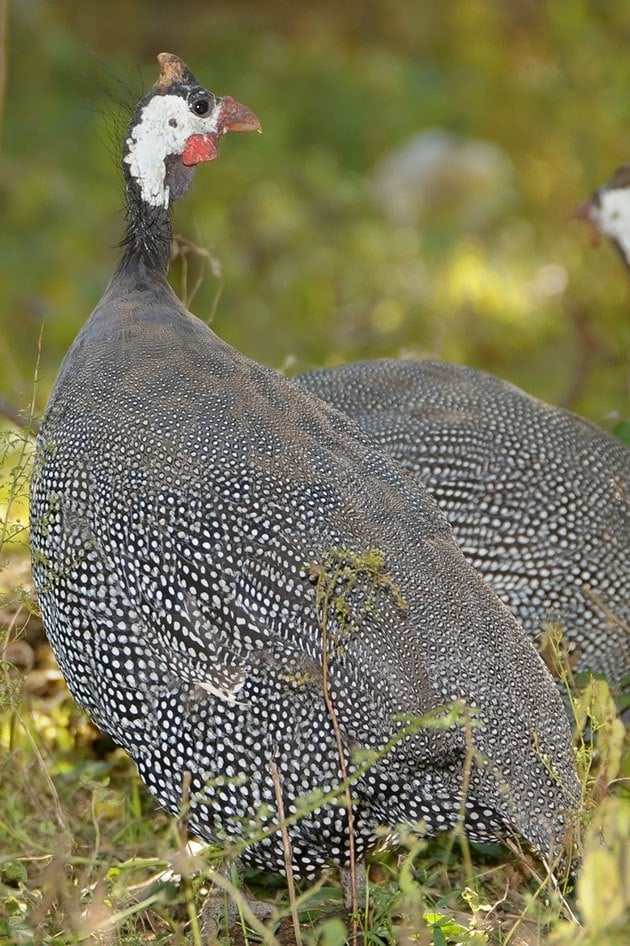
Raising Guinea Fowl…
Let’s say that you enjoyed the video above and decided to go for it and add a few guineas to your homestead. Here are a few frequent questions and answers…
Where do you get guinea fowl? – you can get guinea keets at almost any chicken hatchery online and you might be able to find them locally at a farm supply store or a local hatchery.
If you order online, they ship them just as they do chicks.
You’ll raise them in a brooder just as you’ll raise baby chickens only instead of feeding them chick starter, go with turkey starter if you can (this is not a must).
You can find step by step instructions on how to raise baby birds in my post Raising Cornish Cross Chickens. It’s exactly the same process.
If you have adult guinea hens that lay fertile eggs you can collect the eggs and hatch them in the incubator, let the guinea hen go broody and hatch them, or stick them under a broody chicken (I’ve never tried it but heard of people that added guinea eggs to a Silky nest).
It takes 26 days for the keets to hatch. You can then collect them and raise them in the brooder or leave them for mama hen (guinea or chicken… Whoever hatched them).
If you let the babies free-range you should probably take into consideration that some of them won’t make it since they are a very easy snack and mama guinea isn’t really the best at protecting them.
How do I control my guinea fowl population? – so, if they free-range and are doing their thing, isn’t your homestead going to be overrun by guineas at some point?
I don’t think so… They don’t lay that much, they don’t go broody very easily, they lose many of their young, and they are easy prey.
I never had a problem with my 13 guineas multiplying but if you do you can start collecting the eggs and eat them, sell little keets, harvest adults and use them for meat, or sell adult guineas.
How many males per females? – you want one male for every 6 or so females. If you have too many males they will fight.
Recognizing a male guinea might not be easy but if you observe their behavior you’ll get it. Their call is a bit different than the female call (you can hear the male call in the video above), and you might also notice the males fight with each other.
They are also a little bigger than the females and usually louder.
What do guineas eat? – if they are free-range they don’t really need you to feed them. They are great foragers and will do just fine finding food.
My guineas sometimes came around when I fed my chickens and duck (just regular chicken feed from the store). They love a high protein diet so if you need to choose feed, choose a laying hens feed that has at least 16% protein in it.
Do guinea fowl need shelter? – for the most part, they don’t. They roost in the trees, lay their eggs on the ground and roam around all day.
But, if you raise guineas in a cold, snowy climate you might need to provide them with shelter.
Can I raise guineas in a cold climate? – yes, you can. Even though they are native to Africa and they will definitely prefer warmth, they are hardy and would survive the cold and snow.
As I mentioned above, you might need to provide them with shelter though…
Can I keep guinea fowl with other farm animals? – you sure can. I keep my guinea with the ducks, chickens, and goats and she does not care a bit (she has a problem in her leg and for some reason doesn’t fly out of the fence).
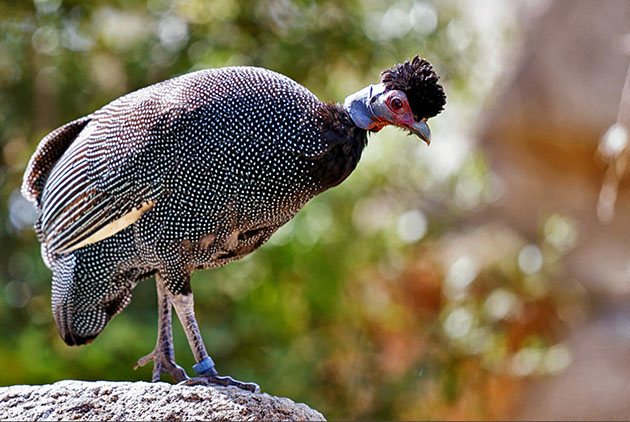
All right my friends, what do you think? If you are considering guinea fowl, after reading this post, do you think that you’ll give them a chance? Do you think the advantages are greater than the disadvantages?
If you already have guineas or if you had them in the past, what do you think about them? Are you a guinea lover or are they not for you?
As for myself… They are not for me only because of the noise. I think that the fact that they eat garden pests and ticks is definitely a huge plus but I could not stand the noise.
If I ever have guineas again it will be in an orchard or a garden that is far away from the house. And I think even then I’ll only have a couple.
I hope this post gave you enough information to make an educated decision. Ultimately, the best thing to do is try and see if you like them.
If you liked this post, you might like these as well…
Affordable DIY Dog House From a Barrel

Hi! I’m Lady Lee. I help homesteaders simplify their homesteading journey while still producing a ton of food! I am a single mother of four, I was born in Israel and raised in an agricultural commune called a Kibbutz. Now I homestead in central NC.



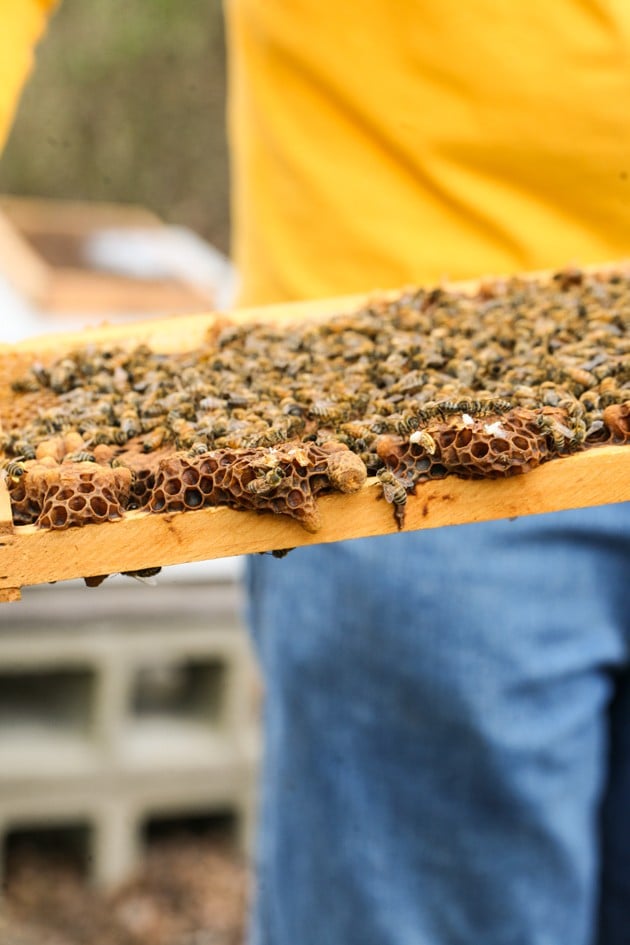
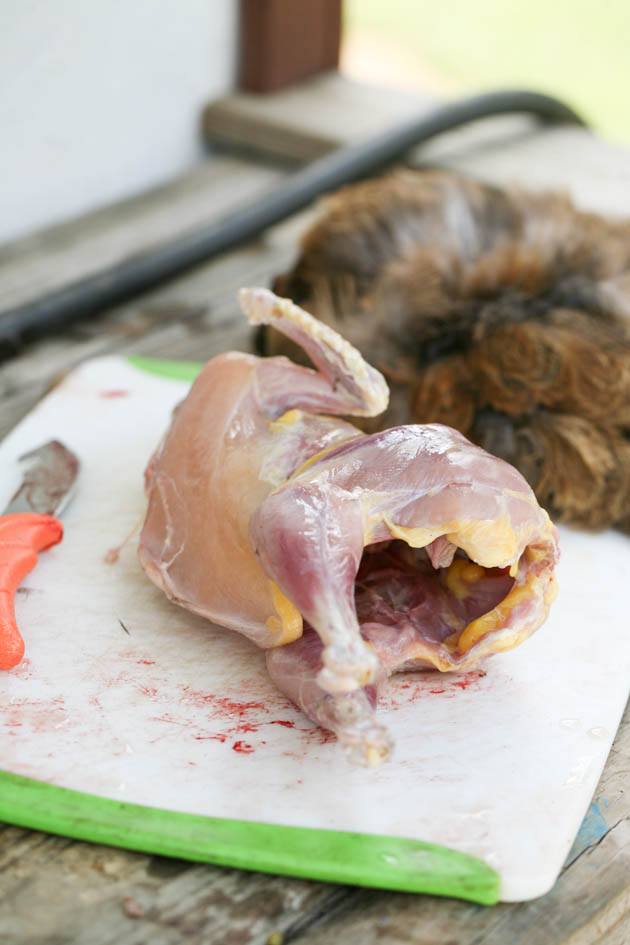
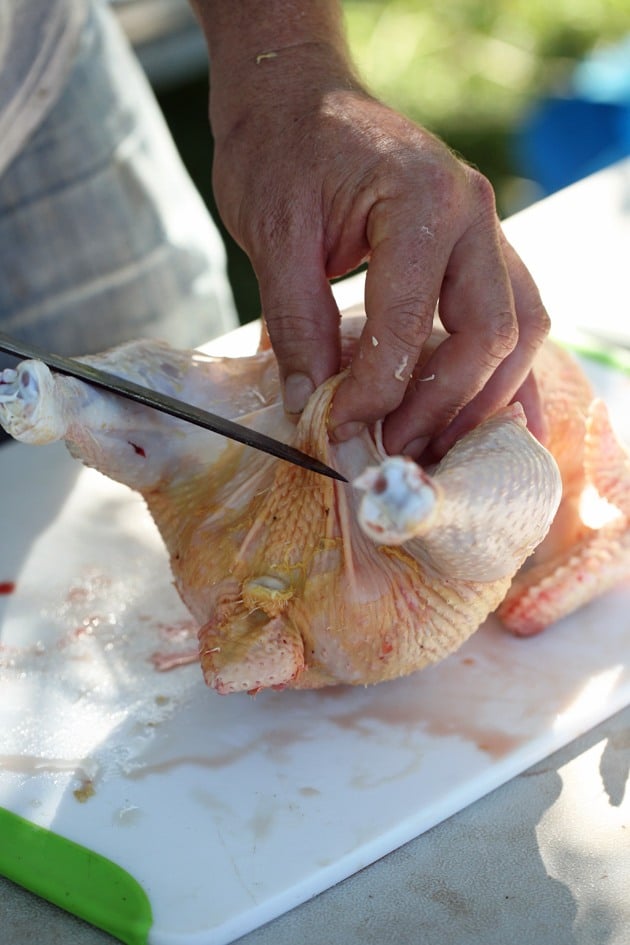
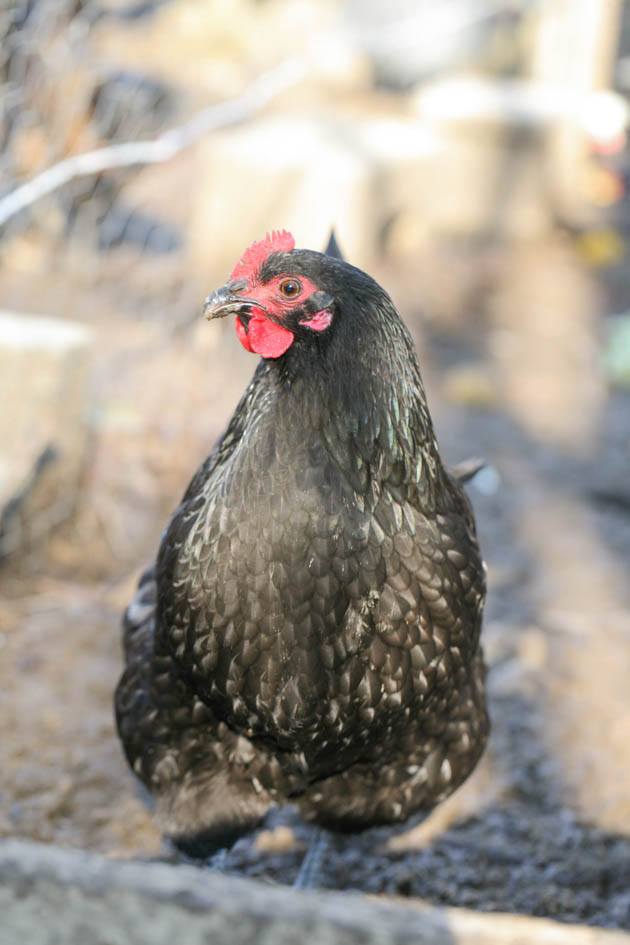
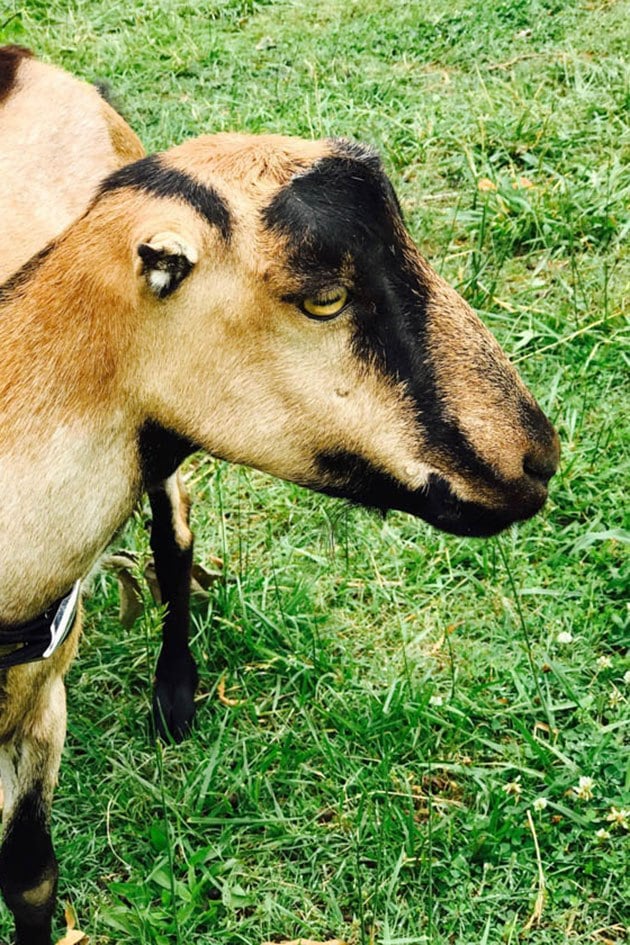
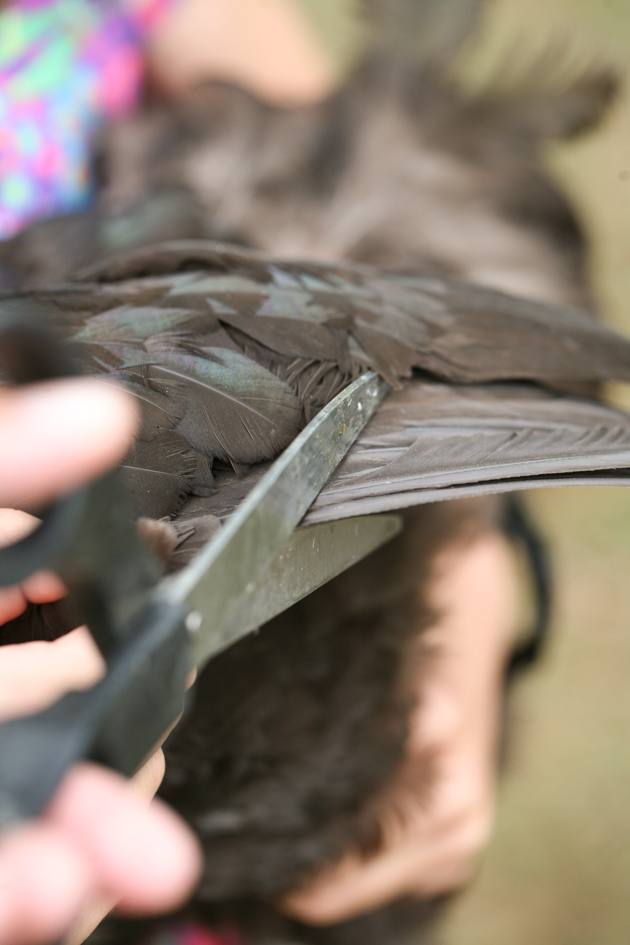
My guineas roost in the chicken house with the chickens every night. All the birds are let out in the morning. The chickens go back in when it’s thinking of switching from evening to night. About an half an hour before dark the guineas start meandering in. At one minute before dark the last two will make their way inside. I don’t hear a peep out of them until morning when they want out. Right now I have 12 guineas roaming my acreage. I hear more noise from my roosters that crow all day than I do from my guineas unless someone or something comes on the place. I love them. Mainly for bug, tic and rodent control . But it is nice to know when something is happening outside out of the normal.
Oh my! Yours are really well behaved.
I hated the noise, and I promised myself that I’ll never have guineas again, however, I had to fence my chickens and my ducks because they were ruining the gardens and now I really miss a bird that will take care of all the bugs. I might need to give guineas another chance.
I wander if I can train them to behave like yours…
Hi Lee, your post on Guinea’s was amazing and funny. I have never read anything like this on guineas. I laughed through the whole post. I am a Guinea lover I think they are amazing birds. I don’t have any at this time but do plan to get some. I hatched 100 baby Keats one season, once they reach a month old they will live forever LOL. Thank You I love your post.
I think that the world is divided into two: those who love guineas and those who don’t 😉
Thank you for your truthfulness about these birds. I don’t think they are for me. We have mature chestnut trees and I was looking for fowl that would peck the ground for eating chestnut weevil larve as they come out of the ground as a female or male fly and after mating the female will fly up the tree and with her long (longer than her body) and push through the green bristly bur, through the shell and into the forming nutmeat, and lay her eggs, hence, the eggs grow and weevils may come out from a bowl on your kitchen table as the larvae are looking for a place on the ground to bury themselves for a year or two, then start the whole process over again, and most of our customers don’t really want to buy chestnuts with weevils inside. Is there anything you can recommend?
Have you considered Muscovy ducks? When it comes to fly and mosquito control they are my personal go to. They are super easy to keep and are amazing cleaners. I have a post on the blog titled “Raising Muscovy Ducks”. Search for it and you’ll find pretty much everything you need to know about them. I’m so in love with these creatures that I recommend them to anyone! But it sounds that they’ll be a good solution to the problem that you are describing.
I put chickens in the brooder with the keets and kept them all together and my guinea are silent as church mice. I had read if your raise them from keets with chicks they’ll be quiet and it worked! Of course the 6 dominiques I raised them with Run around like scared guineas but they’re quiet. I also kept them in the same outdoor kennel for 3 months and never let them out and when I did let them out we grabbed them and trimmed their flight feathers so they couldn’t just fly away right away. It worked! They go into the kennel at night w the chickens and haven’t flown away and it’s been months. So a few things to try when your ready to try again!
WOW! Thanks for sharing this! I’ve never heard or read about the trick of raising them with chicks before. I really want to have them so they can eat the bugs in the garden without eating the garden but I really can’t stand the noise. I might give this a try. Thanks!
I just happened to come across your article and , absolutely, loved it! I was laughing, to myself, the whole time I was reading. Really great the way you do try, so hard, to stay neutral but the “noise” is just too overwhelming!
Wishing you all the best on your homestead, with your family. You are a great writer and entertainer!
Thank you, Judy! I’ve learned that sometimes, with some things, you just have to laugh and let them go 🙂 Guineas are one of those things for me.
We moved into our dream house 8 months ago and was not aware there was a milipede infestation on the property. We are now being over run and they are coming inside. What are your thoughts on Guniea vs Chickens and the probability either could eradicate the issue before I’m forced to sell. I’ve done the poison thing, spray and granuales but the infestation is so large it only assists for a few days. Of course in ETX, the rains come regularly and I have to poison again.
I think both can help. If you don’t mind the noise, try to find guineas but I would definitely get chickens too. The thing is, you have to find adults. I think that young birds won’t keep up. If you are at the point that you consider selling that it sounds like you have a pretty big problem. I’ll get at least 10-15 birds and let them free range. I’d feed them very little just so they stay around. I would also consider ducks. They are the pigs of the feathered animals! They eat so much so fast!
I hope you find a solution! Don’t give up on your dream property!
Michelle,
I’m in the same situation as you….but I think I have won the battle against the millipedes.
We have been in this house for over a year now (as of June) and I’ve got them under control. Lee, feel free to share my email with Michelle so I can explain my system.
Regards,
Greg
You probably don’t want to hear this but I found a bunch millipedes last week and gave them to the chickens and they wouldn’t touch them. I could not believe it. They’ve eaten every insect they can get to but this one. I think the guineas would. So very sorry this is happening to you!!!!
I wasn’t considering having hem anyway, but of the thought ever crossed my mind, I’d remember your wise words and STAY CLEAR of them ??. Thanks for the info, but especially for the laugh….
🙂 happy you liked the post!